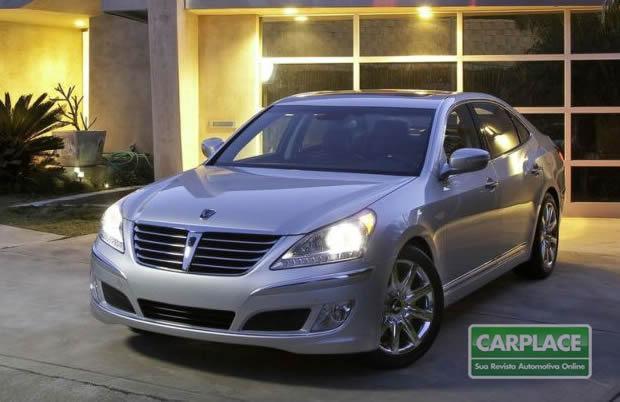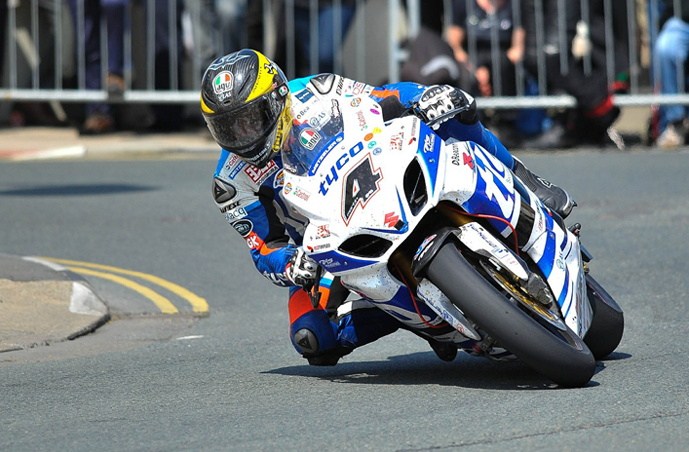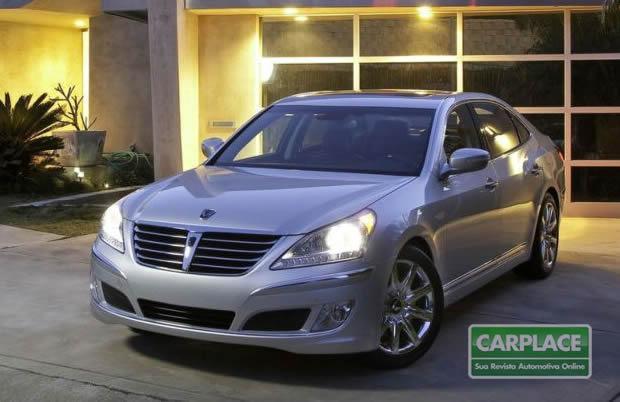
CAR T-cell therapy – Why it’s too soon to speculate about a ‘cure’ for numerous myeloma
Categories
Kathlyn Stone is an associate editor at HealthNewsReview.org. She tweets as @KatKStone.
An experimental immunotherapy treatment for numerous myeloma from a biotech company in China captured broad attention at the just-concluded American Society of Clinical Oncology (ASCO) meeting.
We’ve been following news reports from the meeting closely since it kicked off last Friday:
ASCO’s news release on the fresh treatment, a form of CAR T-cell therapy, noted that the phase one results are preliminary and that the puny trial was short-term. But then it blew past those cautions by speculating that the treatment could send numerous myeloma into long-term remission and might represent “a cure” for this incurable disease. The treatment costs weren’t included, either.
Phase I studies are mainly to assess safety, not benefits
Andrae Vandross, MD, a hematology/oncology fellow at UCLA and a contributor to HealthNewsReview.org, said the news release had some significant details, such as a discussion of adverse events, particularly cytokine release syndrome (CRS), which affected many patients.
But “overall, I wish more attention was paid to the fact that this puny trial was to examine safety and efficacy and that much more needs to be done to make statements regarding clinically meaningful influence on disease,” Vandross said.
The shortcomings of the news release can be found repeated in some of the news coverage.
FierceBiotech’s article played up the “pony race” aspect of the pharmaceutical industry – where contesting companies race to get media and investor attention for their preliminary research, “ASCO dark pony Nanjing Legend Biotech shines with promising CAR-T data.” But costs didn’t make it into the discussion.
Deborah Korenstein, MD, an internist at Memorial Sloan-Kettering Cancer Center, who did attend the meeting, found some of the reports on the CAR-T investigate lacking.
“None of these articles mentions cost, tho’ CAR-T therapy is very expensive. They do note that the follow-up is short-term so far, however they also talk about long-term remission (in the case of the Reuters lump) or “cure” (in the ASCO press release), which at the very least sends a mixed message.”
NBC News’ chunk, “CAR-T Cancer Treatment Has Surprising Success in Numerous Myeloma,” reflects some of this mixed messaging. After reporting that the results were “extraordinaire” and “remarkable” and that the investigate “brings hope” of a possible cure, the NBC story eventually broaches the issues of adverse effects and costs: “The treatment is expected to cost $200,000 to $300,000, and “who’s going to pay for that is a big issue,” according to a investigate author.
Help, not hype: three tips for reporting on early-stage research
What does Korenstein think news organizations and public relations people could do better?
Stick to the evidence at forearm, avoid speculating about outcomes that haven’t been determined, and make sure that potential harms are described as accurately as benefits.
“Certainly there is no evidence so far to support those claims about longer term outcomes. They say it in a ‘hedgy’ way but to me they shouldn’t be mentioning it at all. They also play down the fact that the hefty majority of patients had CRS, even if it was often not ‘severe’ – which is generally defined as requiring hospitalization. It’s not clear here what ‘severe’ means.”
Dr. Korenstein disclosed that her spouse consults for Vedanta Biosciences.
CAR T-cell therapy – Why it – s too soon to speculate about a – cure – for numerous myeloma
CAR T-cell therapy – Why it’s too soon to speculate about a ‘cure’ for numerous myeloma
Categories
Kathlyn Stone is an associate editor at HealthNewsReview.org. She tweets as @KatKStone.
An experimental immunotherapy treatment for numerous myeloma from a biotech company in China captured broad attention at the just-concluded American Society of Clinical Oncology (ASCO) meeting.
We’ve been following news reports from the meeting closely since it kicked off last Friday:
ASCO’s news release on the fresh treatment, a form of CAR T-cell therapy, noted that the phase one results are preliminary and that the puny trial was short-term. But then it blew past those cautions by speculating that the treatment could send numerous myeloma into long-term remission and might represent “a cure” for this incurable disease. The treatment costs weren’t included, either.
Phase I studies are mainly to assess safety, not benefits
Andrae Vandross, MD, a hematology/oncology fellow at UCLA and a contributor to HealthNewsReview.org, said the news release had some significant details, such as a discussion of adverse events, particularly cytokine release syndrome (CRS), which affected many patients.
But “overall, I wish more attention was paid to the fact that this petite trial was to examine safety and efficacy and that much more needs to be done to make statements regarding clinically meaningful influence on disease,” Vandross said.
The shortcomings of the news release can be found repeated in some of the news coverage.
FierceBiotech’s article played up the “pony race” aspect of the pharmaceutical industry – where rivaling companies race to get media and investor attention for their preliminary research, “ASCO dark pony Nanjing Legend Biotech shines with promising CAR-T data.” But costs didn’t make it into the discussion.
Deborah Korenstein, MD, an internist at Memorial Sloan-Kettering Cancer Center, who did attend the meeting, found some of the reports on the CAR-T explore lacking.
“None of these articles mentions cost, however CAR-T therapy is very expensive. They do note that the follow-up is short-term so far, however they also talk about long-term remission (in the case of the Reuters chunk) or “cure” (in the ASCO press release), which at the very least sends a mixed message.”
NBC News’ chunk, “CAR-T Cancer Treatment Has Surprising Success in Numerous Myeloma,” reflects some of this mixed messaging. After reporting that the results were “amazing” and “remarkable” and that the explore “brings hope” of a possible cure, the NBC story eventually broaches the issues of adverse effects and costs: “The treatment is expected to cost $200,000 to $300,000, and “who’s going to pay for that is a big issue,” according to a investigate author.
Help, not hype: three tips for reporting on early-stage research
What does Korenstein think news organizations and public relations people could do better?
Stick to the evidence at forearm, avoid speculating about outcomes that haven’t been determined, and make sure that potential harms are described as accurately as benefits.
“Certainly there is no evidence so far to support those claims about longer term outcomes. They say it in a ‘hedgy’ way but to me they shouldn’t be mentioning it at all. They also play down the fact that the hefty majority of patients had CRS, even if it was often not ‘severe’ – which is generally defined as requiring hospitalization. It’s not clear here what ‘severe’ means.”
Dr. Korenstein disclosed that her spouse consults for Vedanta Biosciences.
CAR T-cell therapy – Why it – s too soon to speculate about a – cure – for numerous myeloma
CAR T-cell therapy – Why it’s too soon to speculate about a ‘cure’ for numerous myeloma
Categories
Kathlyn Stone is an associate editor at HealthNewsReview.org. She tweets as @KatKStone.
An experimental immunotherapy treatment for numerous myeloma from a biotech company in China captured broad attention at the just-concluded American Society of Clinical Oncology (ASCO) meeting.
We’ve been following news reports from the meeting closely since it kicked off last Friday:
ASCO’s news release on the fresh treatment, a form of CAR T-cell therapy, noted that the phase one results are preliminary and that the petite trial was short-term. But then it blew past those cautions by speculating that the treatment could send numerous myeloma into long-term remission and might represent “a cure” for this incurable disease. The treatment costs weren’t included, either.
Phase I studies are mainly to assess safety, not benefits
Andrae Vandross, MD, a hematology/oncology fellow at UCLA and a contributor to HealthNewsReview.org, said the news release had some significant details, such as a discussion of adverse events, particularly cytokine release syndrome (CRS), which affected many patients.
But “overall, I wish more attention was paid to the fact that this petite trial was to examine safety and efficacy and that much more needs to be done to make statements regarding clinically meaningful influence on disease,” Vandross said.
The shortcomings of the news release can be found repeated in some of the news coverage.
FierceBiotech’s article played up the “pony race” aspect of the pharmaceutical industry – where rivaling companies race to get media and investor attention for their preliminary research, “ASCO dark pony Nanjing Legend Biotech shines with promising CAR-T data.” But costs didn’t make it into the discussion.
Deborah Korenstein, MD, an internist at Memorial Sloan-Kettering Cancer Center, who did attend the meeting, found some of the reports on the CAR-T investigate lacking.
“None of these articles mentions cost, however CAR-T therapy is very expensive. They do note that the follow-up is short-term so far, tho’ they also talk about long-term remission (in the case of the Reuters chunk) or “cure” (in the ASCO press release), which at the very least sends a mixed message.”
NBC News’ lump, “CAR-T Cancer Treatment Has Surprising Success in Numerous Myeloma,” reflects some of this mixed messaging. After reporting that the results were “epic” and “remarkable” and that the examine “brings hope” of a possible cure, the NBC story eventually broaches the issues of adverse effects and costs: “The treatment is expected to cost $200,000 to $300,000, and “who’s going to pay for that is a big issue,” according to a explore author.
Help, not hype: three tips for reporting on early-stage research
What does Korenstein think news organizations and public relations people could do better?
Stick to the evidence at mitt, avoid speculating about outcomes that haven’t been determined, and make sure that potential harms are described as scrupulously as benefits.
“Certainly there is no evidence so far to support those claims about longer term outcomes. They say it in a ‘hedgy’ way but to me they shouldn’t be mentioning it at all. They also play down the fact that the meaty majority of patients had CRS, even if it was often not ‘severe’ – which is generally defined as requiring hospitalization. It’s not clear here what ‘severe’ means.”
Dr. Korenstein disclosed that her spouse consults for Vedanta Biosciences.
CAR T-cell therapy – Why it – s too soon to speculate about a – cure – for numerous myeloma
CAR T-cell therapy – Why it’s too soon to speculate about a ‘cure’ for numerous myeloma
Categories
Kathlyn Stone is an associate editor at HealthNewsReview.org. She tweets as @KatKStone.
An experimental immunotherapy treatment for numerous myeloma from a biotech company in China captured broad attention at the just-concluded American Society of Clinical Oncology (ASCO) meeting.
We’ve been following news reports from the meeting closely since it kicked off last Friday:
ASCO’s news release on the fresh treatment, a form of CAR T-cell therapy, noted that the phase one results are preliminary and that the puny trial was short-term. But then it blew past those cautions by speculating that the treatment could send numerous myeloma into long-term remission and might represent “a cure” for this incurable disease. The treatment costs weren’t included, either.
Phase I studies are mainly to assess safety, not benefits
Andrae Vandross, MD, a hematology/oncology fellow at UCLA and a contributor to HealthNewsReview.org, said the news release had some significant details, such as a discussion of adverse events, particularly cytokine release syndrome (CRS), which affected many patients.
But “overall, I wish more attention was paid to the fact that this petite trial was to examine safety and efficacy and that much more needs to be done to make statements regarding clinically meaningful influence on disease,” Vandross said.
The shortcomings of the news release can be found repeated in some of the news coverage.
FierceBiotech’s article played up the “pony race” aspect of the pharmaceutical industry – where challenging companies race to get media and investor attention for their preliminary research, “ASCO dark pony Nanjing Legend Biotech shines with promising CAR-T data.” But costs didn’t make it into the discussion.
Deborah Korenstein, MD, an internist at Memorial Sloan-Kettering Cancer Center, who did attend the meeting, found some of the reports on the CAR-T examine lacking.
“None of these articles mentions cost, tho’ CAR-T therapy is very expensive. They do note that the follow-up is short-term so far, tho’ they also talk about long-term remission (in the case of the Reuters chunk) or “cure” (in the ASCO press release), which at the very least sends a mixed message.”
NBC News’ lump, “CAR-T Cancer Treatment Has Surprising Success in Numerous Myeloma,” reflects some of this mixed messaging. After reporting that the results were “amazing” and “remarkable” and that the examine “brings hope” of a possible cure, the NBC story eventually broaches the issues of adverse effects and costs: “The treatment is expected to cost $200,000 to $300,000, and “who’s going to pay for that is a big issue,” according to a explore author.
Help, not hype: three tips for reporting on early-stage research
What does Korenstein think news organizations and public relations people could do better?
Stick to the evidence at arm, avoid speculating about outcomes that haven’t been determined, and make sure that potential harms are described as meticulously as benefits.
“Certainly there is no evidence so far to support those claims about longer term outcomes. They say it in a ‘hedgy’ way but to me they shouldn’t be mentioning it at all. They also play down the fact that the enormous majority of patients had CRS, even if it was often not ‘severe’ – which is generally defined as requiring hospitalization. It’s not clear here what ‘severe’ means.”
Dr. Korenstein disclosed that her spouse consults for Vedanta Biosciences.
CAR T-cell therapy – Why it – s too soon to speculate about a – cure – for numerous myeloma
CAR T-cell therapy – Why it’s too soon to speculate about a ‘cure’ for numerous myeloma
Categories
Kathlyn Stone is an associate editor at HealthNewsReview.org. She tweets as @KatKStone.
An experimental immunotherapy treatment for numerous myeloma from a biotech company in China captured broad attention at the just-concluded American Society of Clinical Oncology (ASCO) meeting.
We’ve been following news reports from the meeting closely since it kicked off last Friday:
ASCO’s news release on the fresh treatment, a form of CAR T-cell therapy, noted that the phase one results are preliminary and that the puny trial was short-term. But then it blew past those cautions by speculating that the treatment could send numerous myeloma into long-term remission and might represent “a cure” for this incurable disease. The treatment costs weren’t included, either.
Phase I studies are mainly to assess safety, not benefits
Andrae Vandross, MD, a hematology/oncology fellow at UCLA and a contributor to HealthNewsReview.org, said the news release had some significant details, such as a discussion of adverse events, particularly cytokine release syndrome (CRS), which affected many patients.
But “overall, I wish more attention was paid to the fact that this puny trial was to examine safety and efficacy and that much more needs to be done to make statements regarding clinically meaningful influence on disease,” Vandross said.
The shortcomings of the news release can be found repeated in some of the news coverage.
FierceBiotech’s article played up the “pony race” aspect of the pharmaceutical industry – where rivaling companies race to get media and investor attention for their preliminary research, “ASCO dark pony Nanjing Legend Biotech shines with promising CAR-T data.” But costs didn’t make it into the discussion.
Deborah Korenstein, MD, an internist at Memorial Sloan-Kettering Cancer Center, who did attend the meeting, found some of the reports on the CAR-T investigate lacking.
“None of these articles mentions cost, however CAR-T therapy is very expensive. They do note that the follow-up is short-term so far, however they also talk about long-term remission (in the case of the Reuters lump) or “cure” (in the ASCO press release), which at the very least sends a mixed message.”
NBC News’ chunk, “CAR-T Cancer Treatment Has Surprising Success in Numerous Myeloma,” reflects some of this mixed messaging. After reporting that the results were “amazing” and “remarkable” and that the investigate “brings hope” of a possible cure, the NBC story eventually broaches the issues of adverse effects and costs: “The treatment is expected to cost $200,000 to $300,000, and “who’s going to pay for that is a big issue,” according to a probe author.
Help, not hype: three tips for reporting on early-stage research
What does Korenstein think news organizations and public relations people could do better?
Stick to the evidence at palm, avoid speculating about outcomes that haven’t been determined, and make sure that potential harms are described as scrupulously as benefits.
“Certainly there is no evidence so far to support those claims about longer term outcomes. They say it in a ‘hedgy’ way but to me they shouldn’t be mentioning it at all. They also play down the fact that the gigantic majority of patients had CRS, even if it was often not ‘severe’ – which is generally defined as requiring hospitalization. It’s not clear here what ‘severe’ means.”
Dr. Korenstein disclosed that her spouse consults for Vedanta Biosciences.

